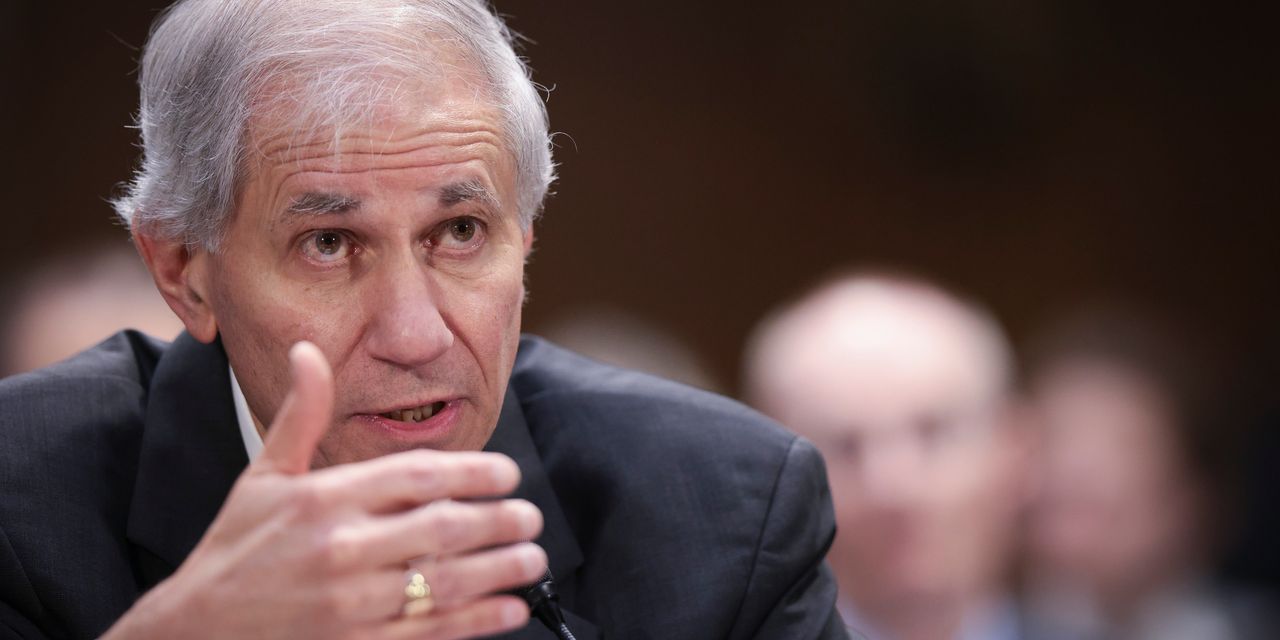Federal Deposit Insurance Corp. Chairman Martin Gruenberg called for new rules and tougher oversight of large regional banks following the failure of several earlier this year, including Silicon Valley Bank.
The failures of SVB and Signature Bank of New York, and the need for federal regulators to bail out uninsured depositors at those institutions, “demonstrate clearly the risk that large regional banks can pose,” to the financial system, Gruenberg said in a speech at the Brookings Institution on Monday, according to prepared remarks.
The stress in the regional bank sector “makes a compelling case for action by the federal bank regulatory agencies to address the underlying vulnerabilities that made the failure of these institutions possible,” he added.
Gruenberg said that one strategy for reinforcing large regional-bank balance sheets will be to institute a rule requiring that institutions with more than $100 billion in assets fund themselves with a larger share of long-term debt.
He added that the FDIC, Federal Reserve and Office of the Comptroller of the Currency would issue a rule proposal to that effect “soon,” following on a similar call by Fed Vice Chairman for Supervision Michael Barr last month.
Another change the bank regulators are working toward is a requirement that unrealized losses in banks’ securities portfolios should impact how much capital a bank must maintain.
Gruenberg noted that Silicon Valley Bank’s failure was precipitated by “the loss of market confidence” after the bank sold off some of its assets at a “substantial loss that raised questions about the capital adequacy of the bank.”
“Had Silicon Valley Bank been required to hold capital against the unrealized losses on its available-for-sale securities….the bank might have averted the loss of market confidence and the liquidity run,” Gruenberg said.
The regulator also said that the FDIC will soon propose a rule that will overhaul the requirement that banks with more than $50 billion in assets periodically submit plans that would guide federal agencies in the case of a failure.
The proposed changes will reflect the FDIC’s experience with SVB and First Republic Bank, and could require banks to keep timely information necessary for continuing its operations and thorough descriptions of key personnel, retention plans and critical third-party services.
Gruenberg also said that bank examiners at the FDIC must be more diligent when overseeing banks that depend on a large share of uninsured deposits for their funding, as SVB and First Republic did.
He suggested the FDIC may create instructions for examiners to take extra care overseeing banks with with uninsured deposits over a certain threshold, and that it could also require banks report deposit information more frequently and in greater detail.
“More forward-leaning supervision of large regional banks is certainly a key lesson from the events earlier this year,” Gruenberg said.
Regional bank stocks have recovered significantly since the spring failures, though the SPDR S&P Regional Banking ETF
KRE
remains down more than 30% over the past year, according to FactSet.
Read the full article here








